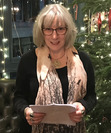Paula R.C. Readman's Blog, page 54
January 20, 2021
Let’s Unite the World
Okay, so I’m bracing myself for a backlash here, but could I just say that I hate anything that divides people whether it is by race, religion or sex but I understand this is just a view point. I’m sure that if this had the header ‘Best books written by men chosen by men’ there would be some comments.
I would love to see an article with the header Best books written by women chosen by Men, Gays, Drag Queens, etc
In a world where we are trying to create unity, I dislike division.
https://www.glamour.com/gallery/best-books-written-by-women-according-to-female-writers
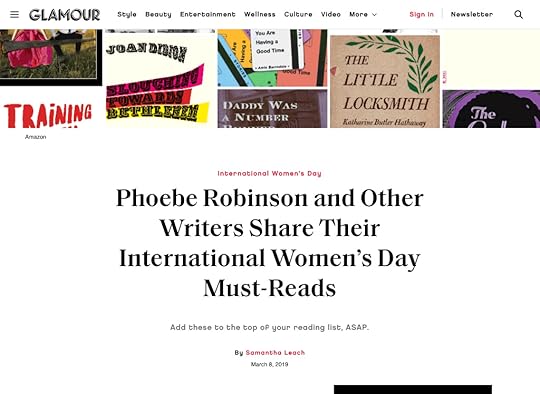
I think my difficulty in understanding this need to categorise each other is left over from my school days. It always seems to me we were being divided into our abilities rather than being given the opportunity to learn from each other. In the playground, there was always the feeling of them and us. The popular kids huddled together talking and whispering and never allowed outsiders in. In my school, boys and girls were taught separately, already we were divided. I so wanted to learn technical drawing more than cookery 
In P.E classes, the teacher would single out two children to select their team to play against each other. Again, the slow and clumsy ones were left feeling rejected, not allowed to feel that they belonged or were important enough to be part of the winning team. That the leader didn’t want them because they would make them into losers.
When you create your characters, do you think about their strengths and weaknesses?
In Trump we have all learnt about what will divide a great nation and how quickly it can fall when words become weapons. When we highlighted our differences and don’t include everyone we are creating problems for ourselves. Again, I understand when we create a level playing there will always be winners and losers.
The level playing field isn’t about taking away the opportunities from those who excel, but about giving those who might not have the opportunities a chance to compete. Take a tv program like Britain got Talent or (whatever country you come from). Every contestant has their chance to shine no matter what, for once they are equal. It isn’t about your wealth, your religion, your sex or age, but about your raw talent, your ability to stand up in front of audience and judges. This is what I like about writing for competitions and submissions. I’m not being judged on the colour of my skin, where I come from, my background, my lack of religion but my words and how I create my magic in telling my tales. If my work is rejected, I don’t take it personally.
 Never judge a book by its cover !
Never judge a book by its cover ! When creating characters we know they have to be flawed because they have to grow within our stories to be realistic so our readers can relate to them. To be able to see either themselves or someone they know in them. None of us are perfect, we all grow and develop throughout our life. Our challenges help us to grow and relate to others, to understand their needs, wants and emotions. This stops us from becoming self-centred.
Back to the article. Yes, it’s interesting to read about women’s view points after decades of males dominations, but I’m ready to move on and open the door to learn about other people’s view points too. What do Japanese women writers think of English women writers books or maybe African women writers think of Chinese women writers’ books?
Have a great day writing  whoever you maybe. Please be polite in your comments below.
whoever you maybe. Please be polite in your comments below. 
Clubhouse Guest’s Chat: Shawnna Deresch
Welcome to Clubhouse Chat page. Those of you who are not a member won’t be aware that the location of the Clubhouse is shrouded in mystery. The only way to visit it is via membership or an invite to the tearoom. Every few days, I’ll be sharing a conversation with all sorts of writers and authors at different levels of their writing careers. Over tea and cakes, or maybe a glass of something stronger, I shall be chatting with my guest about their work in progress, or latest book release.
 Photo by Madison Inouye on Pexels.com
Photo by Madison Inouye on Pexels.comToday, I’m chatting to the horror writer, Shawnna Deresch. Shawnna, like myself, is one of the writers featured in the Women of Horror Anthology, Vol 3 The One that Got Away published by Kandisha Press

Welcome to the tearoom, Shawnna. As always my first question to my guests is what would you like to drink?

Thank you for the invite to the tearoom, Paula. Could I please have a southern sweet tea with some lemon slices. Please allow me to congratulations on your story in Kandisha Press Women in Horror Anthology Vol. 3.
Thank you so much. Congratulations to you too. Now we have our refreshments lets start by asking you when you first begun your writing journey what drew you to your chosen genre?
I’ve always gravitated toward reading horror, the scary, the macabre my whole life, but I’ve always resisted labeling myself as a horror writer or a writer of dark fiction because it seemed horror books got a bad rap. Yes, we have Stephen King and Anne Rice, but those are the exceptions, it seems. I tried my hand at writing romance, suspense and even mystery, but I always felt the stories were missing an element. It wasn’t until I was in high school when a journalism teacher discovered some of my dark fiction stories and encouraged me to write horror. I still resisted until probably the last 10 years. When I finally decided to just give it a try, that’s when my stories and my fiction writing came together.
Tell us a little about latest writing project. Is it a new idea, or one you have been mulling over for some time?
After finishing my short story, Little Sally Ann, which is included in Kandisha Press Women of Horror Anthology Vol. 3, I’ve revisited a draft of a novel that I began over a year ago. It’s working title is called Tethered. It’s about a female non-denominational exorcist. One of my favorite horror subgenres is possession.
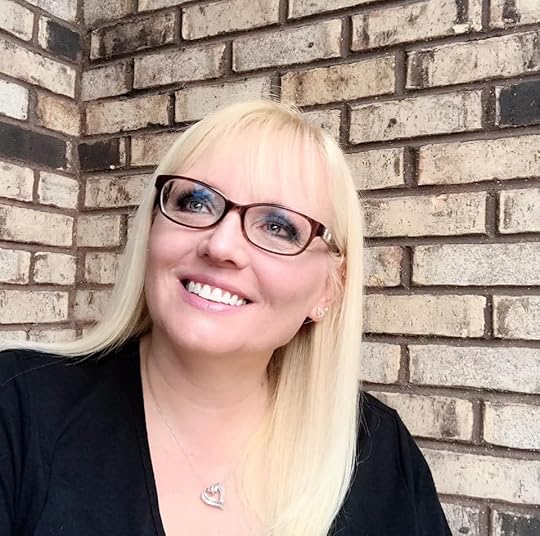 Shawnna Deresch
Shawnna DereschI also have been toying with writing an historical fiction with horror elements about Tsar Nicholas, II and Tsarina Alexandra Romanov and their involvement with Rasputin. It would be a lot of research, but the Romanov family has been a part of history that has always fascinated me. I also have a few short stories for some anthologies that I’m currently editing.
How many unfinished projects do you have on your computer?
Oh, wow! Way too many to list. I hope someday I can go back and dig out the ones that I can possibly save and rework/rewrite. There’s some that should be deleted. The only reason I don’t delete those are because I like to look back and see how far my writing has changed over the years. I have stacks of notebooks with just tons of notes, possible plots, research notes, just anything I want to remember, strewn all over my office that need to be transcribed in to my laptop.
Do you write a synopsis first, write the first chapter, or if you only write short stories, do you let the characters lead you?
I am plotser. I plot everything. So I have a pretty detailed outline before I actually sit down and get that first draft written. I love character driven stories so I’ll already have a main character shaping up in my head before a plot materializes. I have so many characters that I’ve created in my head that most will never be put down on paper. There’s just not enough time.
Were any of your characters inspired by real people?
I do have several of my characters that are based on or inspired by real people but very loosely. I have used some traits, physical and personality wise, from real people that I know. I’ve taken good traits from good people and put them into the antagonists and some bad traits from bad characters and put them into the protagonist. I love the quote by Anne Lamont, “You own everything that happened to you. Tell your stories. If people wanted you to write warmly about them, they should have behaved better.”
What is your work schedule like when you’re writing?
I’m a morning person so I like to get up early between 5:00 a.m. and 6:00 a.m. And before I do anything else, I need caffeine so I’ll make coffee or tea. Oh wait, even before that I have to feed my cats and puppy otherwise, they won’t leave me alone and I won’t get anything else done. I love living in yoga pants and t-shirts with my hair pulled back so that’s my work attire. My best writing time is between 7:00 a.m. to 10:00 a.m. I’ll check emails, brainstorm a new idea, etc. throughout the day. But my head is best in the game at the very beginning of the day. That’s when I do the real writing and editing.
I always carry a pen and notebook just in case I get an idea that I want to write down. I always have both on my nightstand. There’s been times where I just rollover in bed in the morning and pick up a pen and start writing in that notebook before I’m 100% awake. I’ve gotten a lot of ideas in between sleep and that time when you’re not fully awake. By 1:30 p.m. or 2:00 p.m., my brain is mush so I have to take a break. I go to bed really early so sometimes I might write a little in bed, but the real work is done in the morning.
Do you set yourself a daily word count?
I do write daily. My goal is at least 500 words a day that’s useable words for a project. Most of the time I write way more than that. I like having a 500 minimum word count so even if I have a day when I’m under the weather or running errands, I’m still getting words down and I feel accomplished. And those words add up at the end of the week or month. If I write more on a bad day, that’s great, but I figure 500 words, that’s at least a page or two, I can do that even when I have an off day. I have actually written at least 500 words a day, every day, for the past few years without missing one single day, but one. And I made that up the next day with writing over 1,000 words.

How many hours in a day do you write?
Including brainstorming, outlining, rewriting the same paragraph five to ten times and looking for the perfect word, I write several hours a day. It’s not the same as when I had a 9 to 5 job at the law firm. Creative inspiration can hit at any time so if it’s 2:00 a.m., I’ll get up to write. But I’m a morning person so I like to get up early when I have the most energy and write for about 3 or 4 solid hours.
Did you ever consider writing under a pseudonym?
I have considered writing under a pseudonym several times over the course of my writing career. And I did for a while when I began writing seriously in the horror genre. But I ultimately decided that I’m using my real name. Not everyone will enjoy reading horror books or dark fiction, but it’s what I like, and it’s what I enjoy writing so I’m not going to hide behind a pen name. I do respect why people use them and I even had several close people in my life strongly suggest that I need to use one. I know my name is a difficult one to remember and pronounce and I hated it when I was little because it was different. And being different was no fun growing up in a small town. It took me many years into my adulthood before I realized I liked being different. I love my name so I’m going to display it proudly on my books.
How do you select the names of your characters? Do you know everything about them before you start writing their story?
Coming up with my characters’ names is pretty easy. I will already have a good picture in my head of what they look like before I even start writing. And sometimes, the name just comes to me even before I start writing out a plot or brainstorming. Once I pick a name, I rarely, if at all, ever change it because to me, that character is already real in my head.
Thank you for joining me, Shawnna. To find out more about Shawnna’s work check out the links below:
Twitter: https://twitter.com/shawnnaderesch
Instagram: https://www.instagram.com/dizzychickbookchat
If you want to find out more about Clubhouse Members’ Books, don’t forget to check out the Clubhouse Bookshops, too.
January 19, 2021
Clubhouse Guest’s Chat: Dawn DeBraal
Welcome to Clubhouse Chat page. Those of you who are not a member won’t be aware that the location of the Clubhouse is shrouded in mystery. The only way to visit it is via membership or an invite to the tearoom. Every few days, I’ll be sharing a conversation with all sorts of writers and authors at different levels of their writing careers. Over tea and cakes, or maybe a glass of something stronger, I shall be chatting with my guest about their work in progress, or latest book release.

Today, I’m chatting to the horror writer, Dawn De Braal. Dawn, like myself, is one of the writers featured in the Women of Horror Anthology, Vol 3 The One that Got Away published by Kandisha Press
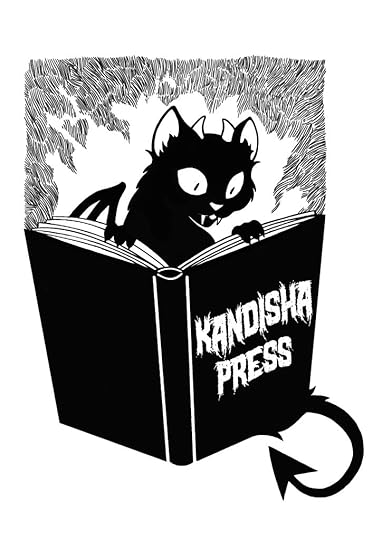
Welcome to the tearoom, Dawn. As always my first question to my guests is what would you like to drink?
Thank you for the invite, Paula! This clubhouse is out of the way, isn’t it? I am so glad you sent a driver for me, but the blindfold was a bit much. Thank you, I’ll take that coffee with cream and sugar, though if it were later in the day, it would be a Bloody Mary.
Now you have your Bloody Mary, Dawn. Can I ask you which writing elements do you think is your strongest points, and what would you like to do better?
My strongest point in writing is that I have a vivid imagination. I can always come up with something to write about.
Tell us a little about latest writing project? Is it a new idea, or one you have been mulling over for some time?
I was honored to be invited to write again for Women in Horror III. I had nothing in mind when I found the theme “The one that got away.” Soon after Jill approached me the news broadcast a story about thousands of people who received unsolicited seeds from China. I thought what would happen if people planted them? And the story wrote itself.
Do you write a synopsis first, or write the first chapter? If you only write short stories, do you plan your story or let the characters lead you?
The characters lead me. I am surprised at the end of the story when the twist happens. It comes from nowhere!

When reading your work through do you ever find that your daily mood swings are reflected in your writing?
My mood always reflects in my writing. If I’m mad, I find killing off someone is a great way to release my frustration.
Did you uncover things about yourself while writing your books or stories?
Whether that be a long forgotten memory, a positive experience etc. Uncovering stories in your past good or bad is part of the writing process. Sometimes a memory can help you start a story.
What is your work schedule like when you’re writing?
My schedule is not regimented. I write when I am moved sometimes hours sometimes just jotting down some thought that has potential to be a story.

Did you ever consider writing under a pseudonym?
I did write one story under a pseudonym. I plan to write others with this name to get that name out of the ditch I dug it into. It deserves so much more.
How do you select the names of your characters? Do you know everything about them before you start writing their story?
Naming characters isn’t hard. Unusual names stick with you. There are name generators online, you can go to a phone book. It’s important to building a character. There is power in a name.
What was your hardest scene to write?
I think the hardest scene to write is a battle scene. You can make it feel real, or you can cheat it from blooming. You don’t want to make is he did, then she did, then he did then they did. It becomes boring.
How long on average does it take you to write a book or story?
Writing a book is still a goal for me. I am not a long hauler. There is an art to writing short stories as well. When I write a short-story, I already have an ending in mind when I start. Writing Invasive Species, the name of my story for Women in Horror III. I had the idea. I wrote in in a couple of hours and let it sit for a few months. I pulled it out and thought of a better ending, so I extended the story just the right amount, I think.
Thank you for joining me in the tearoom, Dawn. To find out more about Dawn’s writing check out her author’s page at Black Hare Press
If you want to find out more about Clubhouse Members’ Books, don’t forget to check out the Clubhouse Bookshops, too.
Oh Yes!
I’m so excited I have just written my first thousand words of my new novel, As the Crow Flies. The book is the follow on to The Funeral Birds so if you want to have a taster please either download the ebook or buy a paperback. This will introduce you to the main characters.
I’ve been looking forward to writing this book since the middle of last year. Yesterday, I played about with another writing project a short story (7k) for an anthology. I sorted out the plot line and wrote the opening paragraph, then rewrote it, and rewrote it again trying desperately to find the tone of the piece. Unfortunately I wasted a day of not writing anything much, though I did two lots of washing, ironed some clothes, made a fruit crumble, hoovered the house all while I tried to work out the opening of the story.
This morning when I sat down to write I decided to focus on my new novel. I was amazed to find the words flow so easily. Yes, a thousand words aren’t much for a days work, but I had a few other things to do. I do like to edit as I go along. My original story line has already changing. Originally the new character found the item when he tripped and fell, but in the opening scene I wrote this morning he tells darker tale of how he came by the item. I think this is a much better opening.
Tomorrow, I look forward to writing more. Granny is happy to be back watching over my shoulder as I tell her tale.
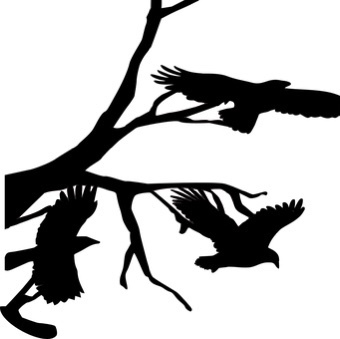 As the Crow Flies: the journey has begun
As the Crow Flies: the journey has begun
January 18, 2021
Clubhouse Guest’s Chat: K. C. Grifant
Welcome to Clubhouse Chat page. Those of you who are not a member won’t be aware that the location of the Clubhouse is shrouded in mystery. The only way to visit it is via membership or an invite to the tearoom. Every few days, I’ll be sharing a conversation with all sorts of writers and authors at different levels of their writing careers. Over tea and cakes, or maybe a glass of something stronger, I shall be chatting with my guest about their work in progress, or latest book release.
 Googled picture
Googled pictureToday, I’m chatting to the horror writer, K. C. Grifant. Kristina like myself, is one of the writers featured in the new Women of Horror Anthology Vol 3 The One that Got Away published by Kandisha Press
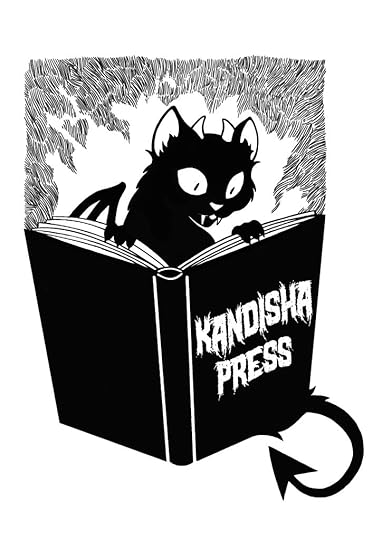
Welcome to the tearoom, Kristina. As always my first question to my guests is what would you like to drink?
Thank you for your invitation to the tearoom to chat about my writing. My favourite drink oatmeal latte, please.
Now our refreshments have arrived can I start by asking you when you first begun your writing journey what drew you to your chosen genre?
I’ve been interested in science and fantasy since I was a kid, so gravitating to sci-fi seemed inevitable. I always like imagining the “what ifs” and seeing how far that thought experiment could go. I’ve also had a deep love of horror from a young age, reading Goosebumps, Christopher Pike stories and Scary Stories to Tell in the Dark. Eventually, stories like those seen on the Twilight Zone and sci-fi thrillers like Jurassic Park got me interested in darker science fiction.
Tell us a little about latest writing project. Is it a new idea, or one you have been mulling over for some time?
The pandemic has given me a chance to finally wrap up a novel I’ve been writing on and off for years. It’s a dark sci-fi tale where a woman with a prototype prosthetic finds herself at the center of a rising social movement and scientific coverup. This has crossover characters and takes place in the same world as my short story “Minor Malfunction,” to appear in The One that Got Away anthology.
How many unfinished projects do you have on your computer?
I’m afraid to look in the “drafts” folder. Easily a dozen or so fragments filed for later. The bins of notebooks are another story.
 K. C. Grifant
K. C. Grifant
Choosing only five of your favourite authors. Can you list them in order 1 begin the top of your list and say how have they influenced your writing?
1-Margaret Atwood: her literary flair and voice is something I will forever aspire to.
2-Toni Morrison: another literary style that transcends typical writing and inspires me to push myself to the limits.
3-William Gibson: my first introduction to the gritty genre of cyberpunk, his books opened my eyes to a fresh, dark version of sci-fi beyond the classics.
4-Herman Hesse: I read him when I was a teenager and it sparked a lot of interest in various philosophies.
5-Shirley Jackson: I read “The Lottery” in grade school and it was my first encounter with an “unhappy” ending. Aside from being deeply disturbing, it prompted me to explore darker outcomes for characters. I’ve rediscovered her work recently and am in awe of her writing deftness.
Were any of your characters inspired by real people?
Not fully, but I try to incorporate small pieces here and there to infuse the characters with a breath of life – the way someone turns there head, or walks, or promotes themselves and occupies the space around them. Most of my characters are fragments of real people mixed together.
What did you learn when writing your book ? In writing it, how much research did you do?
I’m a nonfiction writer by trade so I’m very used to researching and interviewing scientific and industry experts and translating their findings and knowledge to lay audiences. When fiction writing, I try to focus on the story and the truth of the characters, filling in the research aspect later.
Is there anything about you your readers might be surprised to find out?
Even though I write horror, I’m picky about horror movies and don’t generally enjoy most of them, especially ones that are super violent, gory or graphic. I do love cosmic or quirky horror that blends genres like Get Out, His Room or Spring, as well as underwater horror like Crawl, Underwater and Jaws.

What is your work schedule like when you’re writing?
I work a demanding full-time job in science communications and have a toddler, so having a set writing schedule is difficult. I do try to be consistent, writing a little bit when I first wake up, at lunch if work allows, and then before bed. When I have the occasional day off to myself, I try to get a few hours in.
Do you set yourself a daily word count?
Occasionally but sometimes setting that expectation adds stress to already hectic days. I try to be forgiving toward myself and flexible while also staying disciplined and holding myself accountable. If I don’t write at least once every few days I start to feel restless and mentally sluggish.
Did you ever consider writing under a pseudonym?
I do, but only to distinguish from my nonfiction writing.
How long on average does it take you to write a book or story ?
I like to write flash fiction every so often, so I can sometimes write a short story within a day or two and feel that sense of accomplishment that helps fuel more writing. For books, I jump between projects so it’s hard to gauge, but I’m trying to get better about finishing at least one a year.
Thank you for joining me in the tearoom K.C. When you are ready to leave please let our driver know and he will run you home.
If you would like to find out more about K C writing or books please check out the links below:
Links: www.KCGrifant.com amazon.com/author/kcgrifant
Social: instagram.com/kcgrifant/ | @kcgrifant | facebook.com/kcgrifant
Newsletter: http://eepurl.com/hmZGVb
If you want to find out more about Clubhouse Members’ Books, don’t forget to check out the Clubhouse Bookshops, too.
Clubhouse Guest’s Chat: Kristina C. Grifant
Welcome to Clubhouse Chat page. Those of you who are not a member won’t be aware that the location of the Clubhouse is shrouded in mystery. The only way to visit it is via membership or an invite to the tearoom. Every few days, I’ll be sharing a conversation with all sorts of writers and authors at different levels of their writing careers. Over tea and cakes, or maybe a glass of something stronger, I shall be chatting with my guest about their work in progress, or latest book release.
 Googled picture
Googled pictureToday, I’m chatting to the horror writer, Kristina C. Grifant. Kristina like myself, is one of the writers featured in the new Women of Horror Anthology Vol 3 The One that Got Away published by Kandisha Press

Welcome to the tearoom, Kristina. As always my first question to my guests is what would you like to drink?
Thank you for your invitation to the tearoom to chat about my writing. My favourite drink oatmeal latte, please.
Now our refreshments have arrived can I start by asking you when you first begun your writing journey what drew you to your chosen genre?
I’ve been interested in science and fantasy since I was a kid, so gravitating to sci-fi seemed inevitable. I always like imagining the “what ifs” and seeing how far that thought experiment could go. I’ve also had a deep love of horror from a young age, reading Goosebumps, Christopher Pike stories and Scary Stories to Tell in the Dark. Eventually, stories like those seen on the Twilight Zone and sci-fi thrillers like Jurassic Park got me interested in darker science fiction.
Tell us a little about latest writing project. Is it a new idea, or one you have been mulling over for some time?
The pandemic has given me a chance to finally wrap up a novel I’ve been writing on and off for years. It’s a dark sci-fi tale where a woman with a prototype prosthetic finds herself at the center of a rising social movement and scientific coverup. This has crossover characters and takes place in the same world as my short story “Minor Malfunction,” to appear in The One that Got Away anthology.
How many unfinished projects do you have on your computer?
I’m afraid to look in the “drafts” folder. Easily a dozen or so fragments filed for later. The bins of notebooks are another story.
 Kristina C. Grifant
Kristina C. Grifant
Choosing only five of your favourite authors. Can you list them in order 1 begin the top of your list and say how have they influenced your writing?
1-Margaret Atwood: her literary flair and voice is something I will forever aspire to.
2-Toni Morrison: another literary style that transcends typical writing and inspires me to push myself to the limits.
3-William Gibson: my first introduction to the gritty genre of cyberpunk, his books opened my eyes to a fresh, dark version of sci-fi beyond the classics.
4-Herman Hesse: I read him when I was a teenager and it sparked a lot of interest in various philosophies.
5-Shirley Jackson: I read “The Lottery” in grade school and it was my first encounter with an “unhappy” ending. Aside from being deeply disturbing, it prompted me to explore darker outcomes for characters. I’ve rediscovered her work recently and am in awe of her writing deftness.
Were any of your characters inspired by real people?
Not fully, but I try to incorporate small pieces here and there to infuse the characters with a breath of life – the way someone turns there head, or walks, or promotes themselves and occupies the space around them. Most of my characters are fragments of real people mixed together.
What did you learn when writing your book ? In writing it, how much research did you do?
I’m a nonfiction writer by trade so I’m very used to researching and interviewing scientific and industry experts and translating their findings and knowledge to lay audiences. When fiction writing, I try to focus on the story and the truth of the characters, filling in the research aspect later.
Is there anything about you your readers might be surprised to find out?
Even though I write horror, I’m picky about horror movies and don’t generally enjoy most of them, especially ones that are super violent, gory or graphic. I do love cosmic or quirky horror that blends genres like Get Out, His Room or Spring, as well as underwater horror like Crawl, Underwater and Jaws.

What is your work schedule like when you’re writing?
I work a demanding full-time job in science communications and have a toddler, so having a set writing schedule is difficult. I do try to be consistent, writing a little bit when I first wake up, at lunch if work allows, and then before bed. When I have the occasional day off to myself, I try to get a few hours in.
Do you set yourself a daily word count?
Occasionally but sometimes setting that expectation adds stress to already hectic days. I try to be forgiving toward myself and flexible while also staying disciplined and holding myself accountable. If I don’t write at least once every few days I start to feel restless and mentally sluggish.
Did you ever consider writing under a pseudonym?
I do, but only to distinguish from my nonfiction writing.
How long on average does it take you to write a book or story ?
I like to write flash fiction every so often, so I can sometimes write a short story within a day or two and feel that sense of accomplishment that helps fuel more writing. For books, I jump between projects so it’s hard to gauge, but I’m trying to get better about finishing at least one a year.
Thank you for joining me in the tearoom K.C. When you are ready to leave please let our driver know and he will run you home.
If you would like to find out more about K C writing or books please check out the links below:
Links: www.KCGrifant.comand amazon.com/author/kcgrifant
Social: instagram.com/kcgrifant/ | @kcgrifant | facebook.com/kcgrifant
Newsletter: http://eepurl.com/hmZGVb
If you want to find out more about Clubhouse Members’ Books, don’t forget to check out the Clubhouse Bookshops, too.
January 17, 2021
Clubhouse Guest’s Chat: Catherine McCarthy
Welcome to Clubhouse Chat page. Those of you who are not a member won’t be aware that the location of the Clubhouse is shrouded in mystery. The only way to visit it is via membership or an invite to the tearoom. Every few days, I’ll be sharing a conversation with all sorts of writers and authors at different levels of their writing careers. Over tea and cakes, or maybe a glass of something stronger, I shall be chatting with my guest about their work in progress, or latest book release.


Today, I’m chatting to the horror writer, Catherine McCarthy. Catherine, like myself, is one of the writers featured in the Women of Horror Anthology, Vol 3 The One that Got Away published by Kandisha Press

Please may I welcome you, Catherine to the tearoom. As always my first question to my guests is what would you like to drink?
Thank you for inviting me to tearoom. Make mine a latte, please, and a chocolate muffin wouldn’t go amiss.
Now we have our refreshments let me ask you when you first begun your writing journey what drew you to your chosen genre?
I’ve always been drawn to the dark side. I like to pick apart that bit of ourselves we only tap into when we’re alone. You know, the bit of our own psyche we’re afraid of because we know it has the potential to both make or break us. This is why I tend to focus on the psychological aspects of horror as opposed to the physical.
Is there anything about you your readers might be surprised to find out?
Hidden beneath the smiling veneer is a mischievous imp who refuses to conform. I might look as though butter wouldn’t melt, but I was a bit of a wild child during the 80’s. Rock concerts, Goth clubs, hair shaved at the sides etc. And those are just the things I’m willing to admit to publicly.
As I’ve aged my inner imp has mellowed somewhat. Its rebellious nature is still very much alive, but its actions are tame compared to when I was younger.
 Catherine McCarthy
Catherine McCarthy
Do you set yourself a daily word count?
I’m very much a creature who thrives on routine, very organized, must have everything accomplished way before deadlines etc. However, I like to break the habit when it comes to writing and prefer to go with the flow. Sometimes I write or edit no more than a few paragraphs, other times I may write several thousand words. It’s nice to have a more relaxed attitude when it comes to the thing I enjoy doing most, though I still stress if a deadline looms.
How many unfinished projects do you have on your computer?
I’m quite disciplined when it comes to seeing projects through to the end. I have one unfinished short story, based on a real event, and a part-written novella that may never see the light of day. When I was around the age of ten I went to see the evening performance of a circus on ice. We were kept waiting for ages before being allowed into the theatre, the reason being that during the matinee performance one of the trapeze artists had fallen and broken his back. When we were finally admitted, they were still cleaning the ice. I distinctly remember miserable-faced clowns brushing the blood-spattered ice with wide-head brooms. Very Ray Bradbury! I must finish writing that short!
With regards to the novella, the day we moved into our 200 year old farmhouse, the previous owner handed us an antique tin. “These are the things which were found during house renovations,” she said.
Inside sat a bird’s skull, a few small bones, and an empty packet of cigarettes dating from the 1920’s. Hence the start of a ghost story.
What writing elements do you think is your strongest points, and what would you like to do better?
During my years as a teacher I saw many philosophies come and go about how best to teach writing. The one I swear by is Adrienne Gear’s Writing Power, in which she advocates there are six basic traits to writing: ideas, organization, voice, word choice, sentence fluency, and conventions. This philosophy teaches children to recognize their strengths and weaknesses and offers strategies for developing the weaker traits. Adult writers are no different.
I would say my personal strengths are voice and word choice and my weakness is ideas. Finding the original inspiration is easy, but developing the idea into a story can be a struggle for me. I solve it by lying somewhere quiet and sending myself into a kind of meditative state where I visualize the story as I happens. That way, the characters usually lead me out of the fuddle.
Tell us a little about latest writing project. Is it a new idea, or one you have been mulling over for some time?
My current project is a novella entitled Immortelle, which, I’m thrilled to say, will be published by Off Limits Press in summer 2021. It began life as a short story, told from the point of view of a child ghost. However, the mood of the story continued to itch at me and so I decided to expand it into a novella. Essentially it’s still a ghost story, but unrecognizable from the short story I birthed a year ago. It’s told from a different point of view, has a different opening, story progression, ending etc. but the physical element of the Victorian immortelle remains.
Throughout Wales, and especially in more untouched regions such as where I live, Victorian immortelles can still be found in graveyards. Intended as permanent memorials to the dead, they consist of ceramic flowers, birds, cherubs and such like. These ‘permanent’ memorials are arranged on a base and covered with a glass dome before being placed on the graves of the deceased. Such things appeal to my macabre nature, and for this story I imagined a ceramicist who begins to create customized immortelles as a means of coming to terms with a personal trauma. I dare not reveal more without giving spoilers, but I am hugely excited for this publication.
What did you learn when writing your book? In writing it, how much research did you do?
Immortelle is told from the point of view of a ceramicist. The magical realism elements of the story involved knowledge of glaze recipes, different clays, kilns etc. Fortunately, my husband studied ceramics as part of his degree, but I also needed to do a fair bit of research to discover those used around 1910 which is when the story is set. I also needed to research popular ceramic artists from that date so that I could weave in those elements.

How do you select the names of your characters and do you know everything about them before you start writing their story?
Since my story is set in Wales, I needed to come up with Welsh names that were not too difficult to read or pronounce. They also needed to have been popular around the turn of the 20th Century. Also, my characters must ‘look’ like their name, i.e. the physical image I have of them in my mind must be reflected in the name I choose.
With regards to the second half of the question, the answer is no. My characters grow and develop alongside the story.
Were any of your characters inspired by real people?
One of the main characters in Immortelle is an eleven-year-old girl named Rowena. I once taught a young girl who was very similar in personality. She was an absolute darling. Her head was stuck in a book from the moment she entered the classroom door, throughout break, lunchtime, and even during school trips. Like Rowena, she didn’t suffer fools gladly. She didn’t seem to care about fitting in or what the other children thought of her. She was one of six children and the family didn’t have much in the material sense but she was well cared for, loved, and her mum never missed a single parent’s evening for any of her children. I was so upset to learn that during 2020 her mum died of cancer at the age of 38.
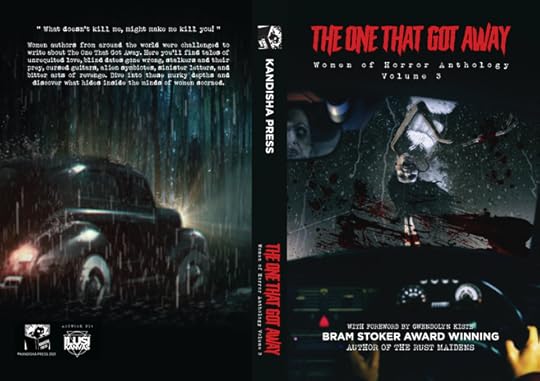
What was the hardest scene to write?
The scenes in immortelle that deal with the grieving process were the hardest. I have a fair understanding of how it works from personal experience, but not from the point of view of a parent. I wanted to deal with the whole gamut of emotion without over-sentimentalising.
This was the main reason I decided not to include the funeral scene. Instead, I wrote an important pre-cursor scene, then alluded to it afterwards.
Thanks for the cuppa, Paula! Like you, I’m so looking forward to the release of Volume 3, The One That Got Away. If anyone is interested in finding out more about my forthcoming novella or my other work, please find me at… https://www.catherine-mccarthy-author.com/
or… Link to my collection, Door and other twisted tales… mybook.to/doortwistedtales
Thank you for joining me in the tearoom, Catherine. Our driver will run you home, when you’re ready to leave.
If you want to find out more about Clubhouse Members’ Books, don’t forget to check out the Clubhouse Bookshops, too.
January 16, 2021
Clubhouse Guest’s Chat: Rowan Hill
Welcome to Clubhouse Chat page. Those of you who are not a member won’t be aware that the location of the Clubhouse is shrouded in mystery. The only way to visit it is via membership or an invite to the tearoom. Every few days, I’ll be sharing a conversation with all sorts of writers and authors at different levels of their writing careers. Over tea and cakes, or maybe a glass of something stronger, I shall be chatting with my guest about their work in progress, or latest book release.

Today, I’m chatting to the horror writer, Rowan Hill. Rowan, like myself , is one of the writers featured in the Women of Horror Anthology, Vol 3 The One that Got Away published by Kandisha Press

Welcome to the tearoom, Rowan. As always my first question to my guests is what would you like to drink?
Thank you for your invite to the tearoom. My favorite beverage is red wine, thank you. I shall look forward to your driver taking me home. The flight in was delightful. A private jet.
We try to provided all our guests need to be able to join us in the tearoom. Now our refreshments have arrived I shall start by asking you when you first begun your writing journey what drew you to your chosen genre?
Honestly, it took me a while to find my way to horror. But I have stuck with it because I enjoy the twists that are often present. The most normal scenario can be running along smoothly, then something outlandish occurs and because it’s the horror genre, we are all cool with it ( Halldark’s The Hatching by Brian Keene, anyone?). It’s for this reason that I think horror is so enjoyable to write, readers don’t expect normal life and are usually disappointed if that’s all you give them.
What writing elements do you think is your strongest points, and what would you like to do better?
I believe I can describe the hell out of an environment, especially one in a state of chaos. I think I need to be more experimental with how ‘dark’ I go in my stories. I’m too nice!
Tell us a little about latest writing project. Is it a new idea, or one you have been mulling over for some time?
The latest novella I hope to publish is a psychological creature feature set in North Alaska. Think Babadook in the wilderness. I’m doing some revisions and no, it came to me one night and I spent approximately an hour in bed furiously typing on my phone and spent the next day fleshing it out.
 Rowan Hill
Rowan Hill
How many unfinished projects do you have on your computer?
Oh god, I just counted. The outlines and ideas for 23 novels, novellas, and short stories.
Do you write a synopsis first or write the first chapter?
From the idea outline to then a fleshed out and after its on my yellow legal paper, I hit the ground running. I jump around a lot based on where the creativity hits.
When reading your work through do you ever find that your daily mood swings are reflected in your writing?
I have found that I am pretty consistent with my writing style (thank god), it all just a matter of how much caffeine I have had that day and if I’m functioning well.
Is there anything about you your readers might be surprised to find out?
I have never watched a murder documentary.
Did you uncover things about yourself while writing your books or story whether that be a long forgotten memory, a positive experience etc.
I think I have just about worked every traumatic experience into my writing at this point. And have discovered using them as material is, obviously cathartic, but also damn good reading. You have so much emotion over it, a whole new range of words and feelings to describe it are present.

What is your work schedule like when you’re writing?
Whenever I can! But find that if I don’t have at least a two-hour window for writing available, very little gets accomplished.
What was your hardest scene to write?
Nothing comes to mind, but in general? Climaxes. (there is a joke in there somewhere.) I just write and write and write a novel for something like 2 months, then it comes to the last three chapters and my brain gives a wave and goes on hiatus.
Thank you for joining me in the tearoom, Rowan. To find out more about Rowan’s writing and her books, check out the links below:
Website; writerrowanhill.com Twitter: https://twitter.com/WriterRowanHill Instagram: https://www.instagram.com/writer.rowan.hill/
If you want to find out more about Clubhouse Members’ Books, don’t forget to check out the Clubhouse Bookshops, too.
January 15, 2021
Clubhouse Guest’s Chat: Meg Hafdahl
Welcome to Clubhouse Chat page. Those of you who are not a member won’t be aware that the location of the Clubhouse is shrouded in mystery. The only way to visit it is via membership or an invite to the tearoom. Every few days, I’ll be sharing a conversation with all sorts of writers and authors at different levels of their writing careers. Over tea and cakes, or maybe a glass of something stronger, I shall be chatting with my guest about their work in progress, or latest book release.
 Photo by Little Visuals on Pexels.com
Photo by Little Visuals on Pexels.comToday, I’m chatting to the horror writer, Meg Hafdahl. Meg, like myself, is one of the writers featured in the Women of Horror Anthology, Vol 3 The One that Got Away published by Kandisha Press

Welcome to the tearoom, Meg. As always my first question to my guests is what would you like to drink?
Thank you for your invite, Paula. Oh, could I have my fave drink which is a cream ale beer, if I’m allowed to drink!
Of course, you can. We have a driver to take you home. So now we have our refreshments, I’ll start by asking you when you first begun your writing journey what drew you to your chosen genre?
I was torn, to be honest. I had grown up loving horror, reading and watching it all the time. But I also loved literature. I studied classic and modern literature in college and I thought literary fiction was my calling. But I wasn’t finding my voice. I finally walked on the dark side and I’m so glad I did!
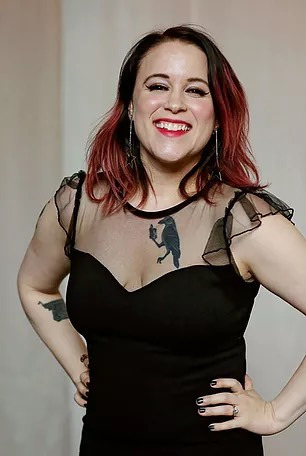 Meg Hafdahl
Meg Hafdahl
Which writing elements do you think is your strongest points, and what would you like to do better?
I’ve always felt that my strong point is inner thoughts; characterization of a single character. I like to linger in their emotions, especially as they grow scared! I’m working on being able to write scenes with a little less singularity, from a bit more expanded view.
Tell us a little about latest writing project. Is it a new idea, or one you have been mulling over for some time?
Well, I have a couple. I’m currently working on my third short story collection for Inklings Publishing. I love short form, it really lends itself well to horror. I’m also co-authoring the fourth in a nonfiction series The Science of Serial Killers for Skyhorse Publishing. It’s a challenge to switch from fiction to nonfiction, one that I welcome! And I am editing my fourth novel, which I’m really thrilled about. There’s still a lot of work to do on it, but I think my readers are going to be intrigued by it. That will be published by Cursed Dragonship hopefully by the end of 2021!
How many unfinished projects do you have on your computer?
Ha. Quite a few. But most of them will be finished, and soon. I have deadlines! As I’ve learned and developed my writing I have far fewer unfinished projects that never find their ending.

Choosing only five of your favourite authors. Can you list them in order 1 begin the top of your list and say how have they influenced your writing?
Choosing only 5 is hard!!
Shirley Jackson. She combines the challenges of being a woman with subtle horror (and not so subtle!) magnificently. I call her “the queen” because her ability to characterize dark emotions, add a splash of humor, and creep you out is unparalleled. I want to write like that. Daphne DuMaurier. Rebecca is a masterclass in atmosphere and setting. I try to keep this book in mind when sculpting the overall feel of my stories. Stephen King. He has this unbelievable ability to find the absurd in any situation and I love that. I can’t help but be inspired. Also his characters always feel so real. Clive Barker. His short stories make me want to be a better writer. His words are poetry. I want his vocabulary!! Tananarive Due. She’s a recent fave. The Good House is a horror novel I can’t stop thinking about. She knows how to tell a story. And she recently wrote an episode for the new The Twilight Zone which is like my dream job!Did you uncover things about yourself while writing your books or stories whether that be a long forgotten memory, a positive experience etc.
Oh yes! For me, writing is a personal experience. I have learned a lot about my own thoughts, anxieties, and fears from my characters. I think one of the things I love about horror so much is the opportunity to bring a character through the worst experience of their fictional lives, and while doing so there is a natural catharsis.
How many hours in a day do you write?
It varies. If I have the time I can write for several hours, but usually I only have an hour here, thirty minutes there. Since the pandemic I’ve had to work harder to carve out time.
Did you ever consider writing under a pseudonym?
Not at all! It’s funny, many of my friends write under a pseudonym and when I realized I was one of the few who didn’t, I thought maybe I had made a mistake! But, the truth is, what I write is me. There is no separation between my words and who I am, so I’m proud to put my real name on my books!

How do you select the names of your characters? Do you know everything about them before you start writing their story?
With names I like to go very plain and normal usually. That’s because my scenarios can often be unbelievable and I like to ground my story in realism first before I bring the horror. I don’t know everything about my characters. For me, that would be boring. I discover as I write. I usually have a clear idea of some important event that happened to them, or a trait they have, but that’s about it.
How long on average does it take you to write a book or story?
A novel takes me usually about nine months to a year from start to finish. I have gone both slower and faster! A short story varies, sometimes the muse is there and I can write it in a few days, while others take more thinking.
Thank you so much for joining me, Meg in the tearoom. When you’re ready to leave just let our driver know and he will run you home. If you would like to find out more about Meg’s writing or books check the links below:
Blog: https://www.meghafdahl.com Blog https://www.horrorrewind.com @meghafdal on twitter Facebook: https://www.facebook.com/meghafdahlhorrorauthor/
If you want to find out more about Clubhouse Members’ Books, don’t forget to check out the Clubhouse Bookshops, too.
January 14, 2021
Clubhouse Guest’s Chat: Mocha Pennington
Welcome to Clubhouse Chat page. Those of you who are not a member won’t be aware that the location of the Clubhouse is shrouded in mystery. The only way to visit it is via membership or an invite to the tearoom. Every few days, I’ll be sharing a conversation with all sorts of writers and authors at different levels of their writing careers. Over tea and cakes, or maybe a glass of something stronger, I shall be chatting with my guest about their work in progress, or latest book release.

Today, I’m chatting to the horror writer, Mocha Pennington. Mocha, like myself, is one of the writers featured in the Women of Horror Anthology, Vol 3 The One that Got Away published by Kandisha Press

Welcome to the tearoom, Mocha. As always my first question to my guests is what would you like to drink?
Thank you so much for your invite to this lovely tearoom, Paula. My favorite beverage is a steaming cup of black coffee, thank you.
Now we have our drinks let me start by asking you, when you first begun your writing journey what drew you to your chosen genre?
I’ve been drawn to horror for as long as I can remember. I was the kid who never flinched during Friday the Thirteen and laughed along with Freddy Kruger during A Nightmare on Elm Street. When we had a creative writing project in elementary school, I always incorporated some aspect of horror into my writing. I’m actually surprised I was never asked to visit the school counselor. I never gave not writing in the horror genre a second thought. When I knew I wanted to be a writer, I knew I was going to be writing horror.
Tell us a little about latest writing project. Is it a new idea, or one you have been mulling over for some time?
My short story, “Liked”, began as an idea for a novel that never really flourished. I was in love with the concept, but it was too close to a movie that had come out that year. When I saw Kandisha Press’ request for submissions for The One That Got Away, I thought about how I wanted that abandoned novel to open and believed it would not only work better as a short story but would also fit perfect with the theme of Kandisha Press’ anthology.
How many unfinished projects do you have on your computer?
Too many to count if I’m honest. I have this annoying habit of hoarding everything I’ve ever written, I’m still unsure if it’s healthy or not. Everything from a few chapters of an abandoned novel to a few quick descriptions are all saved to my iCloud. Hell, I even have the spiral notebooks I wrote a novel in back in high school.
I will say, in my defense, that hoarding everything has come in handy a time or two. I extracted a scene from an abandoned novel and plopped it into the novel I’m currently writing. I like to think small incidents like those justify my hoarding.
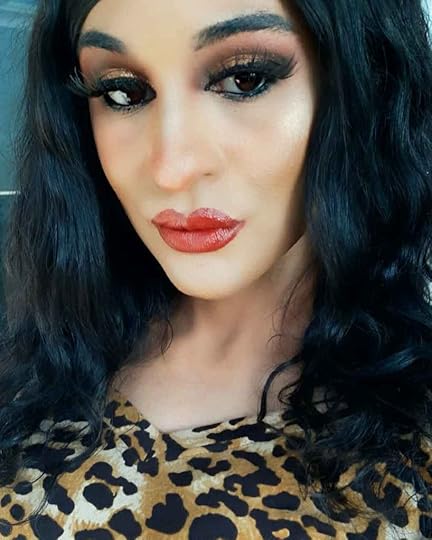
Do you write a synopsis first, write the first chapter, or do you let the characters lead you?
I dive into the first chapter and see what happens. I go into each writing project with an idea of what the story is about, but I’ve never written out a synopsis. I really enjoy the surprises that come with writing. You can start a project believing a character is one way but can come out completely different, or a new character can pop up and change the course of the story and the relationships between other characters. As cliché as it sounds, I let the characters write themselves and manipulate the story.
When reading your work through do you ever find that your daily mood swings are reflected in your writing?
I don’t think my characters will allow my moods to have any bearings on them and their story. When I open up that word processor, they know it’s time for them to speak and anything I have going on won’t be acknowledged.
Were any of your characters inspired by real people?
I haven’t written a character yet who has been inspired by a real person. I do, however, have characters who have certain quirks and mannerisms from people I know or have experienced something similar to someone in my life. For me, if I went into a writing project knowing a character will be heavily influenced on a real person, then that character would be placed inside a box and wouldn’t be able to develop.
Is there anything about you your readers might be surprised to find out?
My taste in television. I don’t watch much television, but when the latest season of American Horror Story isn’t on, I like reality TV. And not just any reality TV, I like what’s on VH1, all the franchises in Love & Hip-Hop and Basketball Wives. Since Covid, I’ve been having reality TV withdrawals. I haven’t seen a new episode in a year. I find myself intermittently searching Google, finding out if any filming has begun.
How many hours in a day do you write?
In my ideal world, the answer would be eight plus hours, but since we’re in reality, I’d say that it varies. My weekends are dedicated to writing, that’s when I get to spend those eight plus hours on writing. In the week, however, I don’t get to write as much as I would like to. Without counting the weekends, I’d say I write about three hours a day, and that’s if I got to write every day in the week.
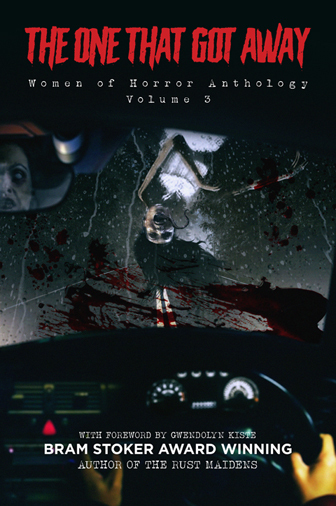
How do you select the names of your characters? Do you know everything about them before you start writing their story?
If I read or hear a name that I really like, I keep it in the back of my head until I’m beginning a new writing project and give it to my character. I tend to give my main characters names I adore. When selecting names for my minor characters, I usually give them a mashup of first and last names from characters in the book I’m reading at the time.
I have a good understanding of my characters before writing them, but a lot of the time, they reveal extra layers to me as I get to know them better through the writing process. I once believed a character was going to be the heroine of the story, but the more I got to know her, I realized she wore a mask to fool everyone, and she was, indeed, a villain.
What was your hardest scene to write?
Any scene that is important to the story, I find it a bit difficult to write. For example, I have a scene I call “the final dinner” in the novel I’m working on. Without going into too much detail, the scene is meant to cause a division between the characters. I attempted to write it a few times then avoided it. I feel like I tend to overthink important scenes and doubt myself a lot before I’m able to shun any second thoughts and give into my writing.
Thank you so much for joining me in the tearoom, Mocha.
To find out more about Mocha’s writing and books the links below:
If you want to find out more about Clubhouse Members’ Books, don’t forget to check out the Clubhouse Bookshops, too.

